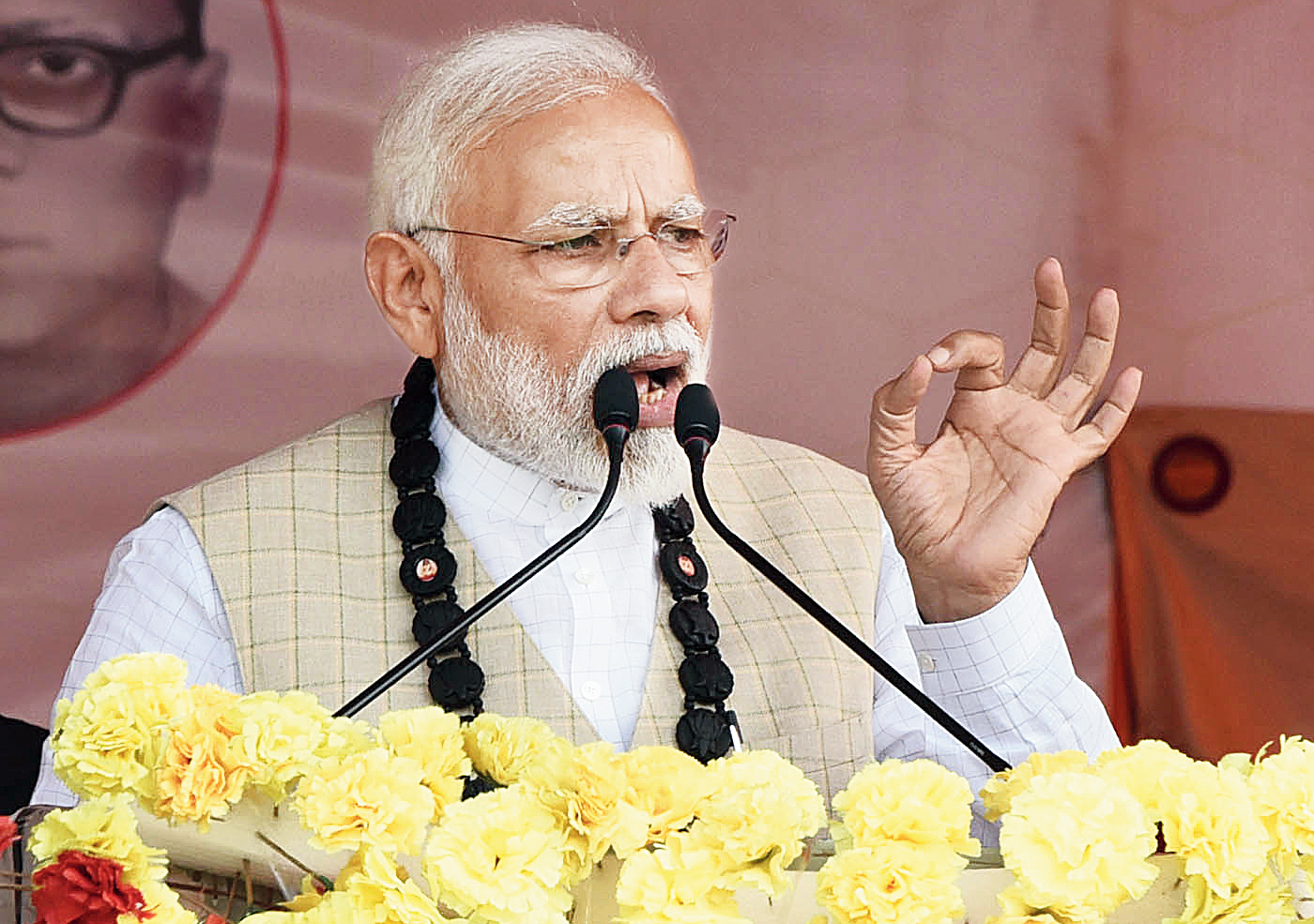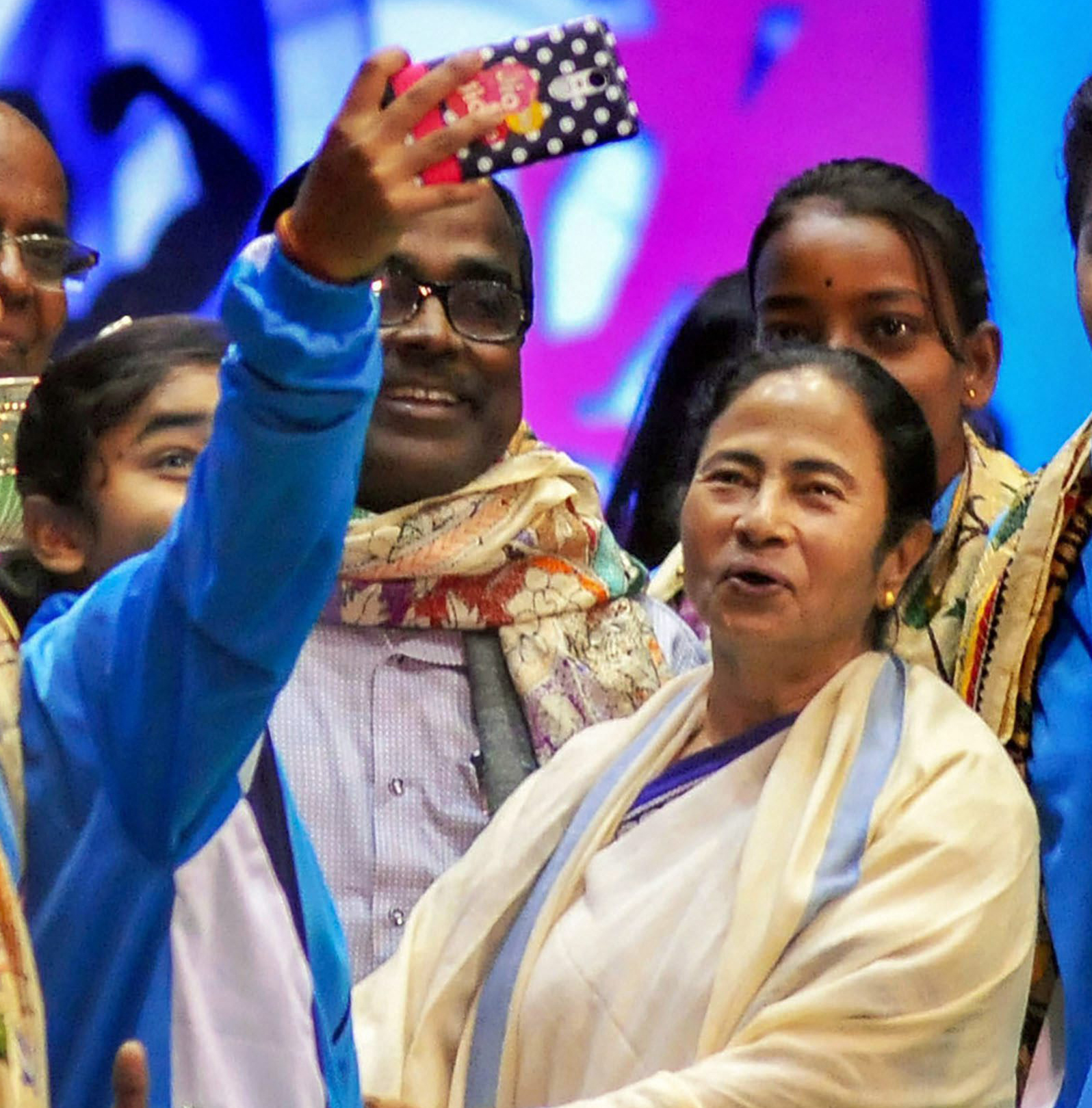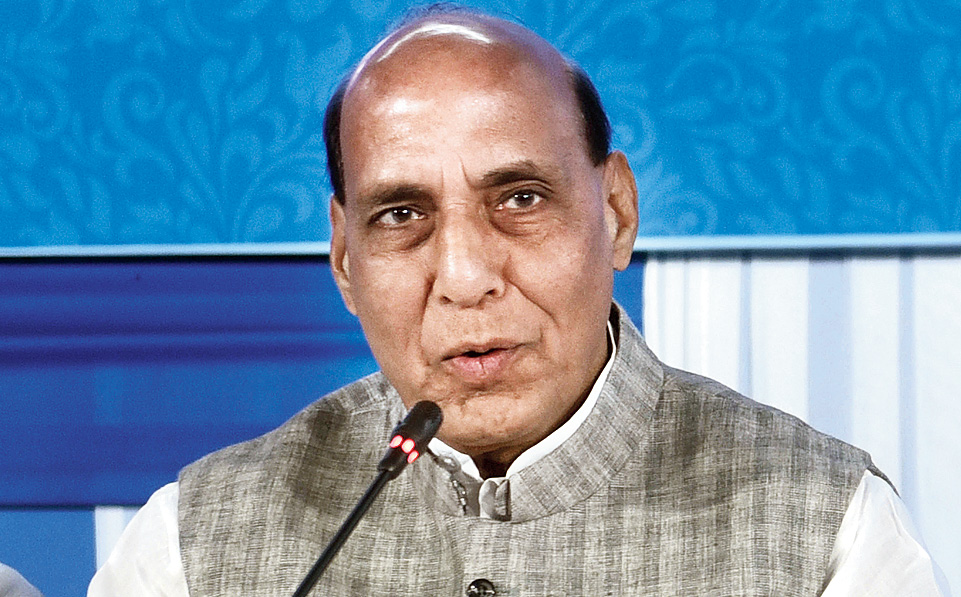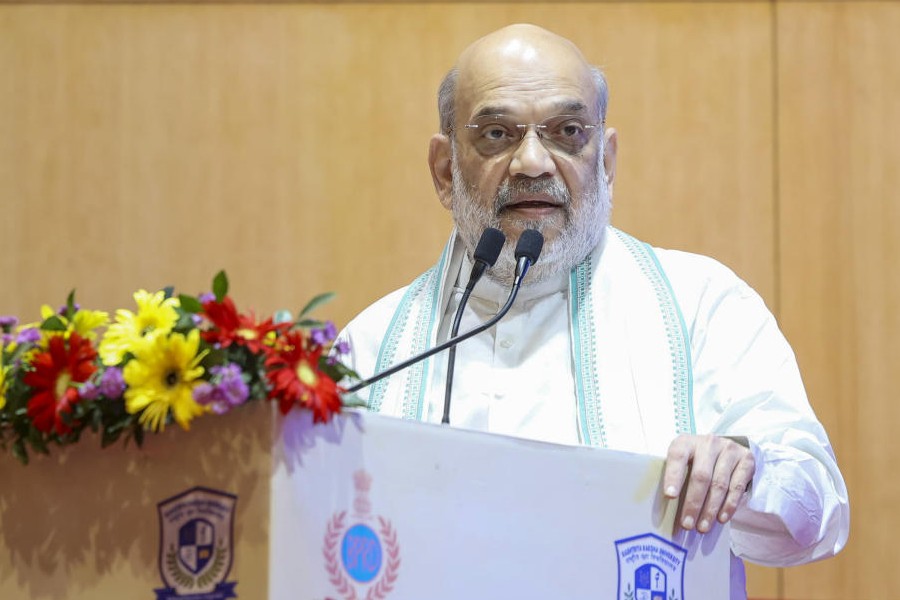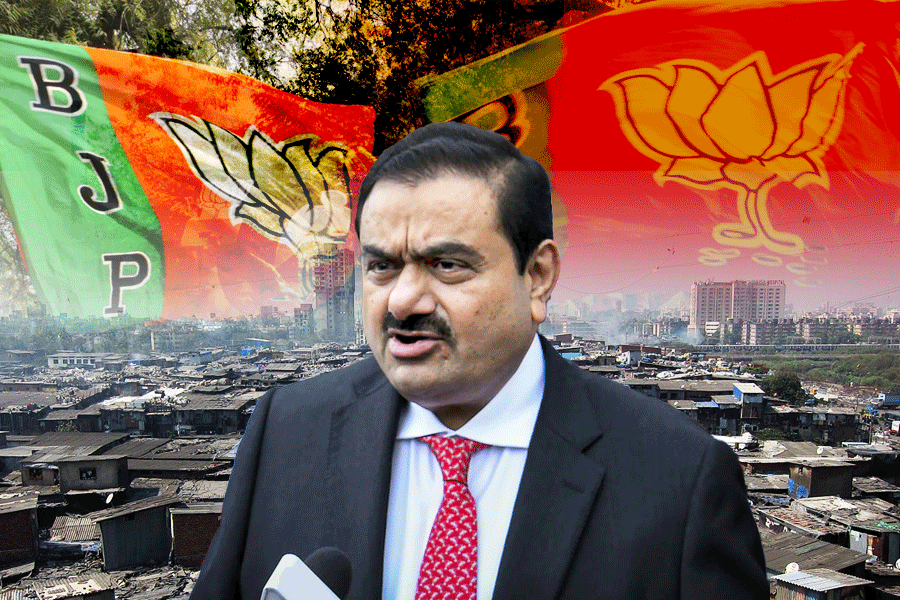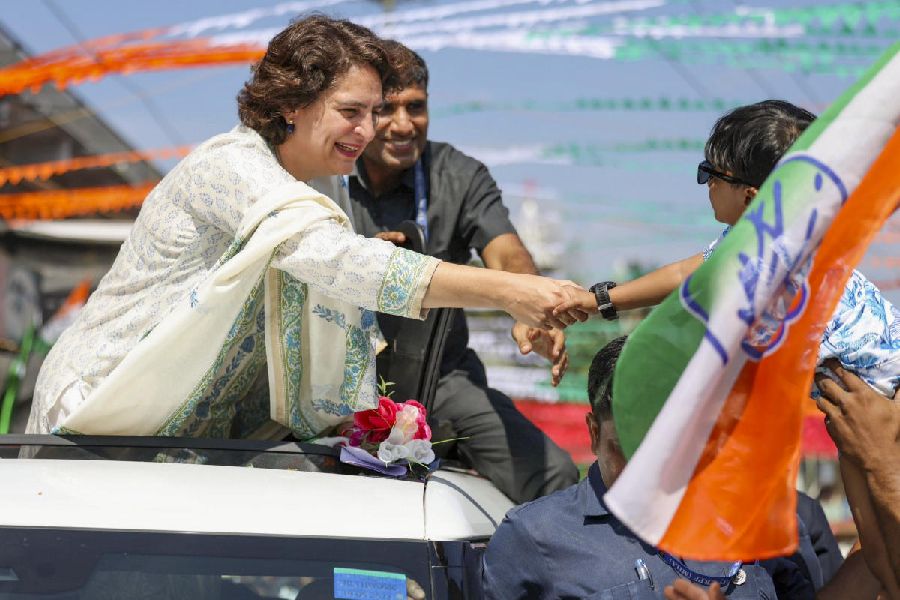The stage was set, the audience was ready but the Prime Minister appeared not so keen.
Narendra Modi on Saturday adopted a toned-down approach on the Citizenship (Amendment) Bill, broaching it briefly towards the end as he addressed an event here of the Matua community, which enthusiastically supports the proposed legislation.
Modi’s caginess on the bill, which seeks to facilitate citizenship for non-Muslim immigrants from Afghanistan, Bangladesh and Pakistan, could be a result of the resistance it faces in the Northeast where the BJP is eyeing gains in the general election, BJP sources suggested.
Bengal chief minister Mamata Banerjee, whose party opposes the bill because it discriminates between immigrants on religious grounds, had on Monday stolen a march on the BJP by giving freehold land rights to residents of 94 refugee colonies in the state irrespective of faith.
Modi had a chance to strike back at Thakurnagar, around 30km from the Bangladesh border, where he was the chief guest at an event organised by the Matua, a politically influential Scheduled Caste sect that could help decide five to seven Lok Sabha seats.
Most Matuas, who now make up four per cent of Bengal’s population, came over from Bangladesh after Partition — and a sizeable chunk only after the cut-off date of March 25, 1971, which makes it tougher for them to secure citizenship. They are hoping the amendment bill, when passed, would ease their difficulties.
In his short reference to the bill, the Prime Minister said: “Don’t you think that the Hindus, Christians, Sikhs, Parsis, Buddhists and Jains, who became victims of communal strife in Pakistan, Bangladesh and Afghanistan, have the right to live in India?”
The crowd chorused: “Achhe, achhe (They have, they have).”
Modi seized the chance to take a dig at Mamata: “I want to tell Didi so that her party supports the bill.”
But while the bill was passed in the Lok Sabha last month, the government has not yet listed it in the Rajya Sabha, where it lacks a majority, encouraging murmurs about a go-slow prompted by the northeastern states’ opposition.
There’s a fear that the bill’s passage would “destroy the cultural identity of the Northeast”. Earlier this week, 10 northeastern political parties including regional BJP allies, as well as the BJP’s Bihar partner Janata Dal United, had held a show of strength and vowed to defeat the bill.
But in Bengal’s border regions, the bill has its own appeal for the late non-Muslim immigrants — most of them from the primarily agrarian Matua community — who have been struggling to obtain citizenship.
That the bill is important to Thakurnagar was clear on Saturday. From 10am till Modi began his address around 12.35pm, speaker after speaker — from the BJP and the Matua community — sought its early enactment.
A few representatives of the Matua community from Bangladesh were on the dais too. They described the plight of the minorities in the neighbouring country and expressed support for the bill.
Modi, though, had to prematurely end his speech after 17 minutes because of a suffocating crush and a near-stampede midway through it that left many in the audience ill.
An estimated 1.5 lakh to 2.5 lakh people had been allowed into a small school ground, a senior district police officer said, blaming the organisers who he said were responsible for crowd management.
Modi expressed regret for the Thakurnagar crowd’s plight while addressing his next event in Bengal, a party programme in Durgapur. But he did not mention the bill.
The Matua, a close-knit community that tends to vote as a block, had in 2009 switched loyalties from the Left to Trinamul, largely thanks to Mamata’s personal equations with the sect’s matriarch, Binapani Devi, fondly called “Boroma”.
The BJP, however, has been making inroads into the community and Saturday’s turnout was proof of that. Modi also pulled off a coup by meeting Boroma here — despite attempts by the Trinamul-supporting sections in the sect to scuttle the appointment — before the rally and seeking her blessings.
Trinamul sources acknowledged that the Modi-Boroma meeting was an embarrassment for the party.
Mamata later told ABP Ananda that she would oppose the citizenship bill and demanded that the Centre withdraw it.
“The Centre will have to withdraw the citizenship bill. We’ll make it (do so). There’s no question of supporting it; we’ll oppose it. We will not let him (Modi) succeed,” she said.

